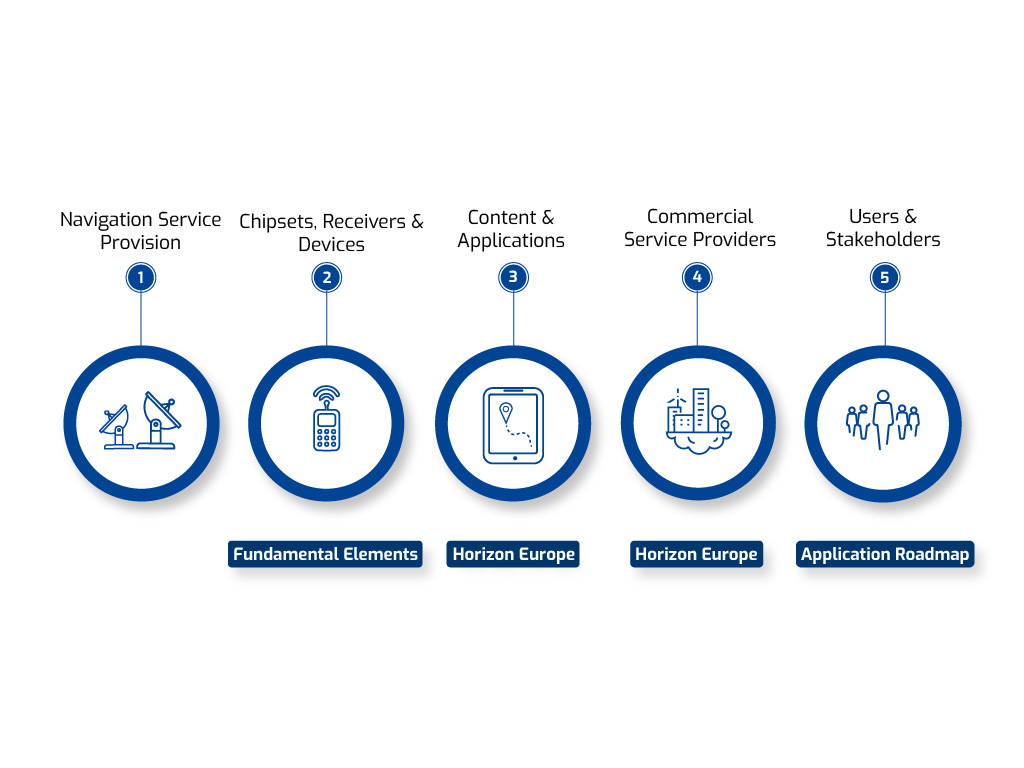Fundamental Elements

What is Fundamental Elements?
Fundamental Elements is an EU R&D funding mechanism supporting the development of EGNSS-enabled chipsets, receivers and antennas. The Fundamental Elements projects are part of the overall European GNSS strategy for market uptake, led by EUSPA. The objectives of the Fundamental Elements can be summarised as follows:
- Facilitating the adoption of the European GNSS Systems, building on their innovative services and differentiators;
- Improving the competitiveness of the EU industry;
- Addressing user needs in priority market segments;
- Maximising benefits to European citizens.
The total budget for all the projects, to be carried out from 2021 – 2027, is EUR 43 million.
With the new framework, there is a second round of the Fundamental Elements Programme, which will be a continuation of the previous successful one. The closer focus will be on:
- The continuity of being driven by user needs in all market segments;
- Operational implementation of current differentiators - e.g. OSNMA, HAS, triple-frequency;
- Preparing for commercial implementation of new differentiators - e.g. EWSS, SAS, ARAIM;
- Developing emerging, disruptive technologies (e.g. leveraging machine learning, artificial intelligence);
- Exploring synergies with other space systems on user technology - e.g. Copernicus, Secure Communications.
Fundamental Elements Grants
For ongoing calls for proposals within the Fundamental Elements Programme, please consult the EUSPA Grants page.
Open Grants
The following grant opportunities are currently open under the Fundamental Elements Programme:
- Galileo HAS enabled Space receiver
- Robust and professional receiver leveraging on Galileo differentiators
Complementarity with H2020 and Horizon Europe
Fundamental Elements complements the EU’s Horizon 2020 and also its successor Horizon Europe research programmes. Horizon Europe, on the one hand, aims to foster the adoption of Galileo, EGNOS and Copernicus, mostly via content and application development and supports the integration of services provided by these programmes into devices and their commercialisation. Fundamental Elements, on the other hand, focuses on supporting the development of innovative chipset and receiver technologies that the industry would not yet invest in on its own initiative, thus accelerating their integration of Galileo, EGNOS and Copernicus into market-ready devices.
Downstream Value Chain
